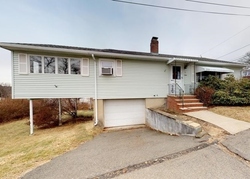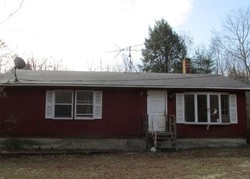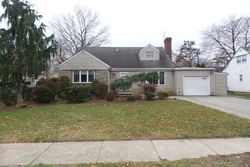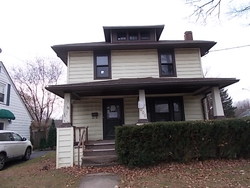What is Foreclosure?
The process of either selling or taking ownership (also known as repossession) of a property is known as foreclosure. Foreclosure is when a lender recovers the amount owed on a loan that has been defaulted, therefore securing the loan. The process of foreclosure proceeds when a borrower/owner does not pay the cost of a loan (usually mortgage payments). The lender is then able to file a public default notice. Below we list the four ways in which a foreclosure process can finish:
1. The borrower/owner may decide to pay the amount owed in order to re-establish the loan during what is known as the grace period. State laws determine the terms of a grace period, which is also known as pre-foreclosure.
2. The borrower/owner may decide to put the property up for sale to a third party during the grace period (also known as pre-foreclosure). During this transaction, the borrower/owner has the opportunity to pay off the loan and avoid having a foreclosure marked on their credit history.
3. A third party may decide to purchase the property during a public auction during the end of pre-foreclosure period.
4. The lender may decide to get ownership of the property. This is usually done with the intention to re-sell later on. Ownership can be attained through an agreement with the owner/borrower during pre-foreclosure. Buying the property back at a public auction can also attain ownership, also known as bank-owned properties.
The foreclosure process signifies three bargain-buying opportunities.
Pre-Foreclosure (NOD, LIS):
Purchasing a property during pre-foreclosure is when the buyer wishes to buy property from the borrower/owner. The borrower/owner can either refuse the offer in order to avoid any bad mark on their credit history. This enables the buyer to research both the title and condition of the property and allows for discounts to be obtained. These discounts usually are between 20-40 percent below market value.
Auction (NTS, NFS):
Buyers can bid on the property at a public auction when a loan is not restored by the end of the pre-foreclosure period. Buyers usually do not have a lot of time to research the title and condition of the property before the auction. Buyers are also required to pay in cash at the end of an auction. Often auctions offer some of the best bargains. Auctions also allow the buyer to avoid any and direct interaction with the borrower/owner.
Bank-owned (REO):
Lenders are able to attain ownership of a property either through an agreement with the owner during pre-foreclosure or at a public auction. Lenders re-sell properties in order to recover an unpaid loan amount. After this, the lender then proceeds to make sure the title is clear for the buyer.
Make sure you have the necessary resources needed to buy foreclosed properties before buying a property.
Social Bookmarks
Latest Bank Foreclosures for Sale Nationwide
Foreclosure Homes by State
Select a state in the list below for foreclosure listings of bank foreclosures for sale.
- Alabama
- Alaska
- Arizona
- Arkansas
- California
- Colorado
- Connecticut
- Delaware
- Florida
- Georgia
- Hawaii
- Idaho
- Illinois
- Indiana
- Iowa
- Kansas
- Kentucky
- Louisiana
- Maine
- Maryland
- Massachusetts
- Michigan
- Minnesota
- Mississippi
- Missouri
- Montana
- Nebraska
- Nevada
- New Hampshire
- New Jersey
- New Mexico
- New York
- North Carolina
- North Dakota
- Ohio
- Oklahoma
- Oregon
- Pennsylvania
- Rhode Island
- South Carolina
- South Dakota
- Tennessee
- Texas
- Utah
- Vermont
- Virginia
- Washington
- Washington DC
- West Virginia
- Wisconsin
- Wyoming
© 2026 ForeclosureRepos.com All rights reserved. Terms and Conditions and Privacy Policy.








